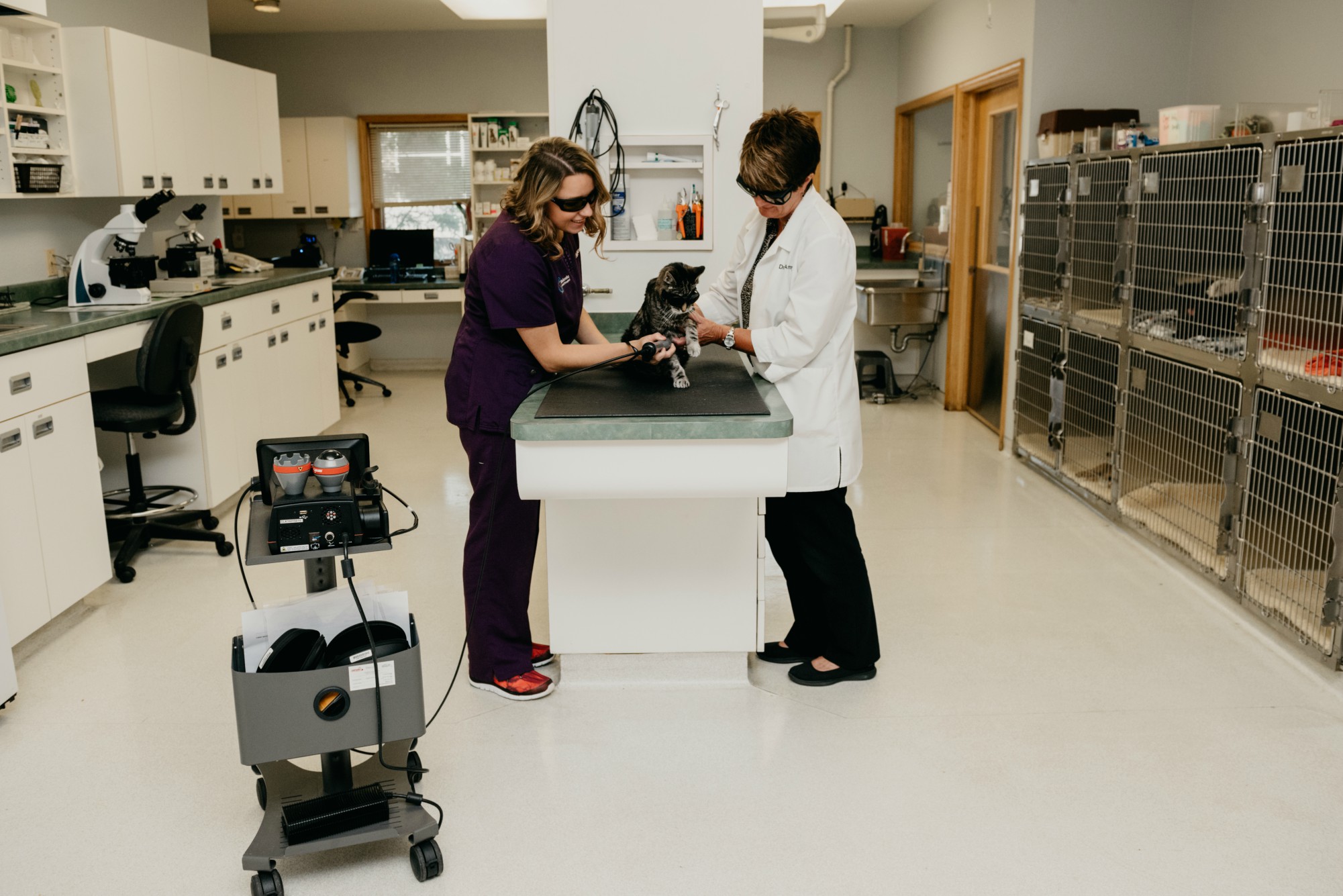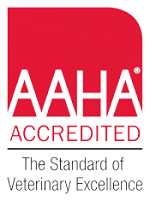
Have you ever thought it would be fun and exciting to be a veterinary technician? Have you ever wondered what a vet tech does all day? The duties of a vet tech are quite varied and will change from day to day. Many days they are doing whatever needs to be done inside (or outside) the veterinary clinic. Here is a partial list of some of the things that may required of a vet tech on a daily basis:
- Checking in surgery and dental patients. Getting the correct paperwork filled out and signed and asking important questions for your pet’s safety. Verifying what we will be doing the day of your pet’s procedure.
- Obtaining medical histories. The vet tech is usually the first person you will encounter at your pet’s exam appointment. They will ask questions about your pets health, medications, lifestyle, medical issues, vaccination status and preventative health care. They can usually answer many questions that you have about procedures and recommendations.
- Comforting and restraining you pet during its’ exam or procedure. Vet techs are trained to restrain your pet safely and properly for everyone’s safety. They are trained to evaluate your pet’s emotional state and adjust their restraint techniques accordingly. Some pets do better with more minimal restraint, while some need to be restrained in a “bear hug”, in a towel wrap or have a muzzle placed for everyone’s safety. Treats and pheromone sprays are used when appropriate and the techs are masters at figuring out what each pet needs to be as comfortable as possible.
- Drawing blood samples, placing IV catheters, taking x-rays, performing laser treatments, obtaining blood pressure readings and collecting free catch urine samples. Handling adjustments and the location that blood samples are taken are adjusted to accommodate your pets’ comfort. Treats, distraction and comforting words are used to reduce your pets’ stress and anxiety as much as possible.
- Cleaning – lots of cleaning! Technicians have daily, weekly and monthly maintenance lists to make sure everything is kept clean and in proper working order. If your pet has a urinary or stool accident or is vomiting, the vet techs will be first on the scene for cleanup. After each surgery or dental procedure, the surgery or dental suite needs to be thoroughly cleaned, restocked and prepped for the next day procedures. Surgical and dental instruments must be carefully cleaned and autoclaved according to protocol. Surgery packs and gowns are assembled and autoclaved to be ready as needed. Exam rooms must be cleaned and prepped after each appointment throughout the day.
- Laundry – lots of laundry! We use many towels, blankets, cage cozies, surgical drapes and gowns during the course of every day. The vet techs do loads and loads of laundry most days to keep up with the piles of laundry that can quickly accumulate.
- Filling prescriptions. Vet techs are typically the ones who fill, double check and/or call in your pets’ prescriptions during appointments and for refill requests throughout the day. In a typical day we may fill 20-40 prescriptions or more.
- Technician appointments. Each day we have technician appointments for vaccines that may have been split from the annual exam, bloodwork rechecks, blood pressure readings, nail trims, expression of anal glands, pre-surgical blood draws and more. The technicians need to navigate back and forth between these appointments and assisting the DVM’s in exam appointments.
- Answering questions and giving advice when appropriate. Most phone call questions go first to the technicians. They evaluate to determine which questions they can answer and which need to be sent to the veterinarian for more specific advice. Once the veterinarian has answered the more specific questions, the technician is often the one to call the client to relay what the veterinarian has said. This helps the veterinarians to stay on task and see appointments in a timely manner.
- Helping with phone calls, client concerns and checking out clients when the customer service reps are too busy. Assisting clients out to their cars with their pets or supplies when needed.
- Quality controls and routine maintenance on in house lab analyzers, anesthetic machines, microscopes and more. Being an AAHA certified hospital, we have many checks and balances to make sure everything is maintained properly and in peak working order.
- Checking inventory stock and alerting the manager to the need for supplies. Some items are tracked in the computer, but many hospital supplies cannot be tracked this way. It is up to the technicians to do weekly and monthly inventory counts to make sure we are kept well stocked and supplied as much as possible.
This is just a partial list of all of the things that may be asked of a vet technician in a typical day. They are also always on hand to lend moral support to pet owners and comfort and care to your pet when they may be anxious or afraid. Veterinary technicians are integral to running a veterinary clinic and a very important resource for information and help to pet owners and other veterinary staff alike.




